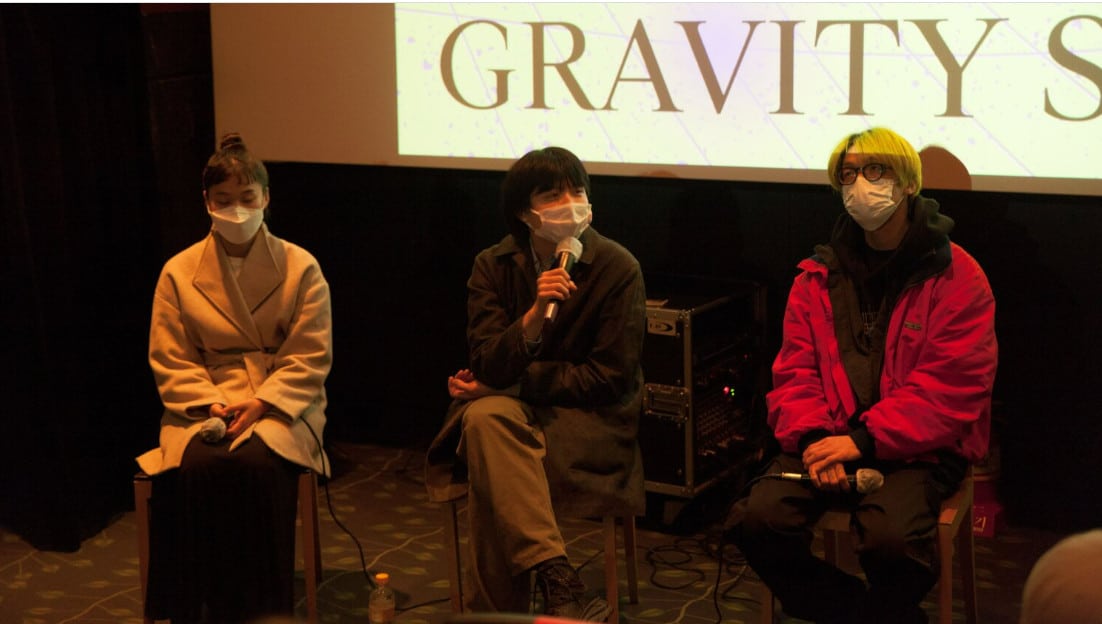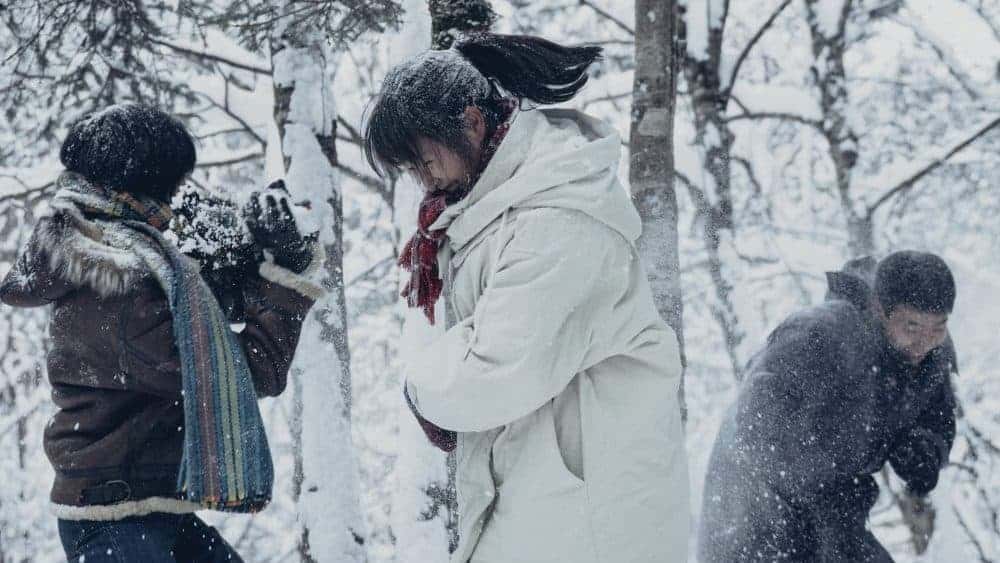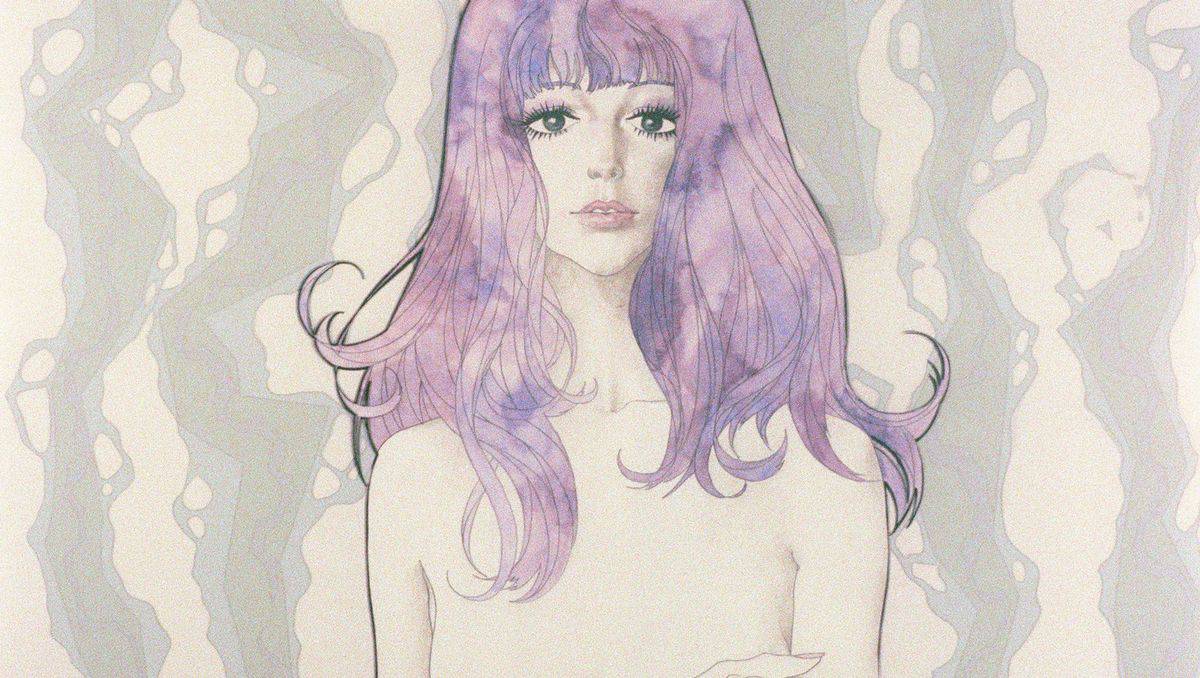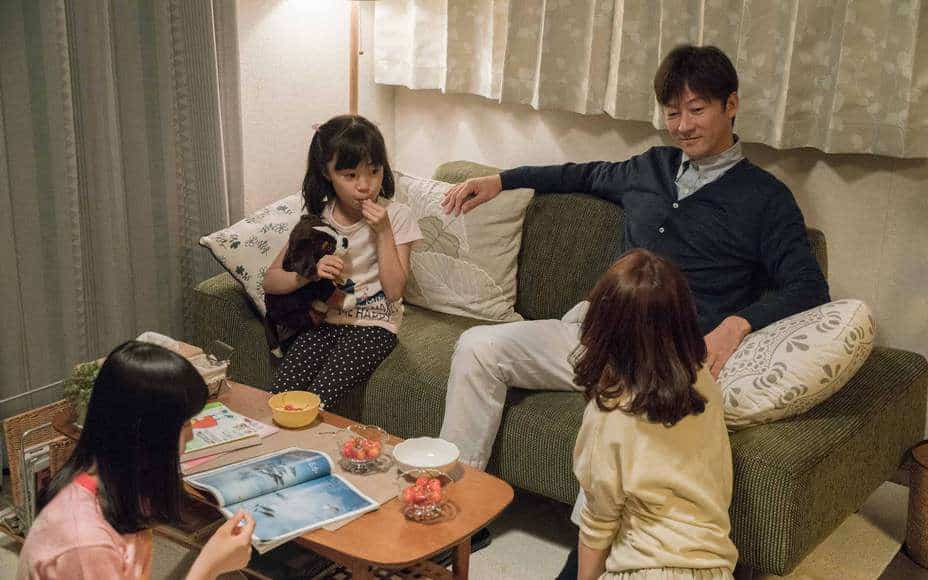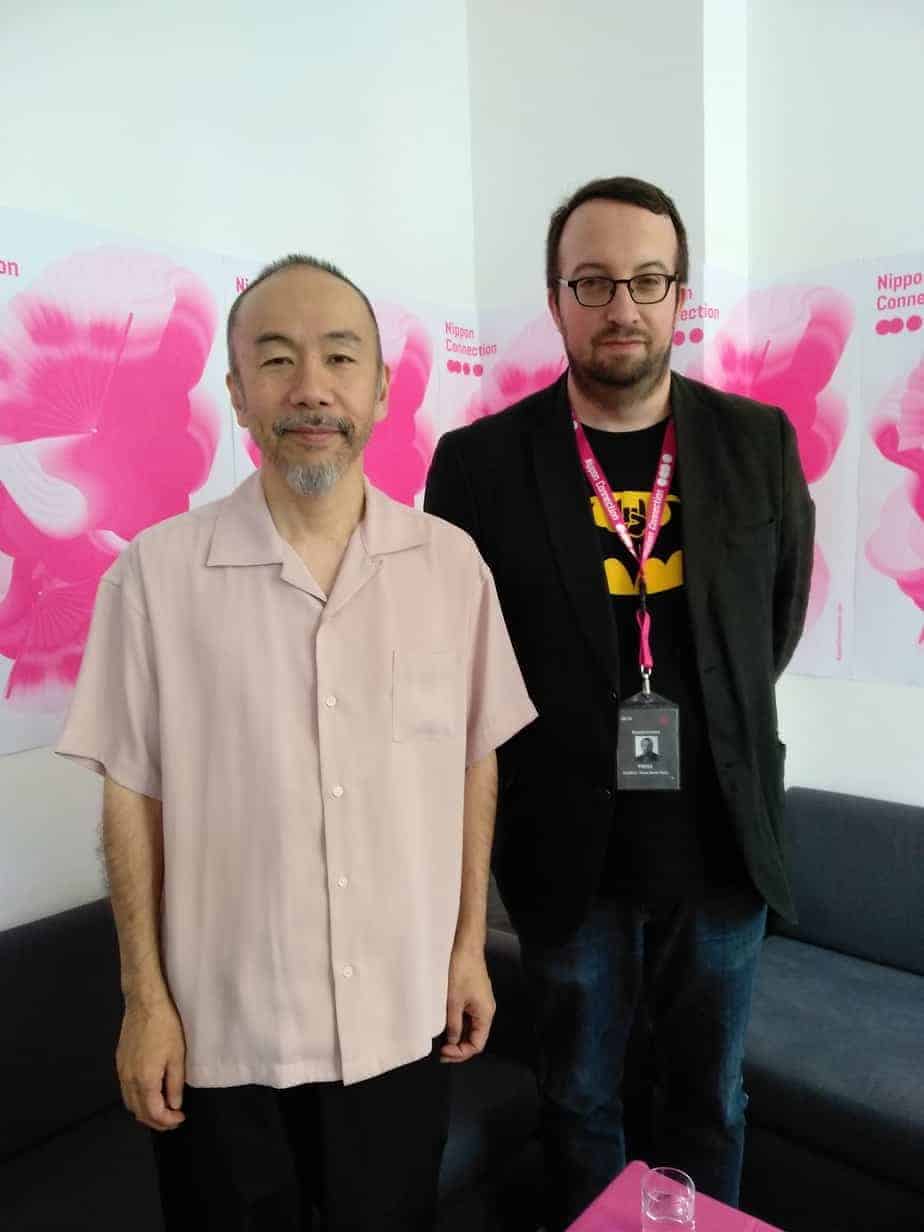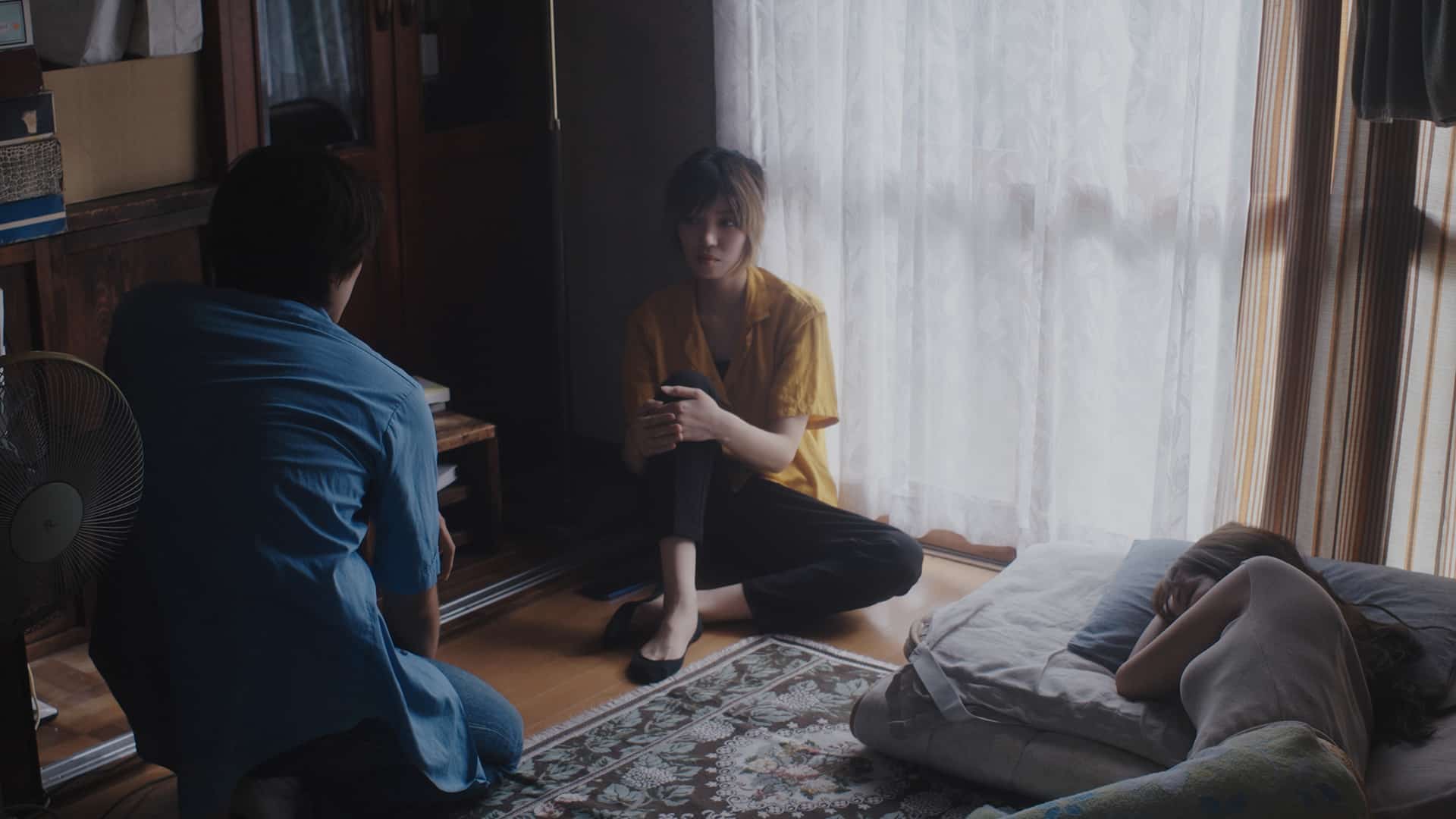Lhaki Dolma is an actress, laureate of numerous acting awards, one of the most important people in the Bhutan film industry. Screenwriter, director, producer and social activist working for women and children's rights.
On the occasion of her film, “In A Defiled World” screening at Five Flavours, we speak with her about her life, her career, the film, Bhutanese cinema and other topics.

Your background is quite different from acting, since you have a studied in ILCS and the Royal Institute of Management, and worked in Civil Service for some years. How did this change occur, and do you think it has helped you in your career in the movie industry?
I never wanted to become an actress, I became by chance. I was in my pre-university when I got my first offer, and I didn't know what to make of it, because we had just started the industry then, and everybody was looking for actors, since there was no acting school. A friend of mine asked me if I could come at an audition, although I did not know it was actually an audition back then. So, he gave me a script, which was in our language, and I went to the college where I studied language and culture and it was a piece of cake reading the script. So, I read it and then the next moment they said “you are in”, and I could not believe it but they said, “you are in the movie”. So, that was my first movie, in 1998, and I was still studying at the time, and the movie took a year to be released, because of the post production and because I was studying at a boarding school, and they had to wait for me to come at weekends and public holidays. Finally, we released the movie and it was received really well by the audience.
Soon after, I got a second movie offer, which was the blockbuster of those year and also netted me my first Best Actress Award. From that moment on, I didn't look back, although this does not mean I abandoned my studies. I studied, but in the winter and summer breaks I made sure I participated in some movies. After graduation, I gave these exams for public service, where only the top 13% are picked up by the government. I got selected, and that is how I studied in my post-graduate, in development management and I served in the ministry for three years and I took a break from movies during that period. However, by that time, I had already done four movies and in those three years, I felt like I did not belong there, my heart belongs to the movies. So after three years, and although my parents were upset and my friends thought I was crazy for leaving a steady job and getting into an industry that was not stable at all at that time. But I thought, it is better to follow my heart, so I resigned and became a full time actress.
You are also a social activist working for women and children's rights. Can you tell us a bit about that?
Not exactly a social activist. In Bhutan, we are very lucky that there is no discrimination between gender and his Majesty the King has given us equal opportunity. However, women are not standing into the decision making level positions because the education system started very late in our country, we didn't have schools and they had to travel to India. So the first batch of people who studied where men, because they had to walk through many passes and the general idea was that women were just good for home. Therefore, it took some time for women to come forward and that is why we feel that, not that the Bhutanese women are not talented, but someone has to push the button in order for them to come forward. So that is why I make sure, in everything that has to do with women and children, if needed, I do whatever they need to come forward, to show their talent to the world. Because they are a bit shy, but we need women to come forward, because there is still much way to go, in order for them to participate in the decision-making processes,
In “A Defiled World” most women, apart from your character that is, actually beg to get married. Is this a realistic approach for the women in Bhutan, or is the one of your character?
With the modernization of the country, everything is changing, so what we are trying to say through the movie is how to respect women in every profession. She is a singer, a bar dancer, but at the end of the day she is a human being. I know a couple of women who are dancers and they chose this profession, not because they cannot find a job elsewhere, but because they are truly passionate about their line of work. However, some have no choice; they have to do it to earn a living. We feel it is time to make people aware of all this, and to understand women of every profession better.
What about women's presence in the Bhutanese film industry?
In the movie industry, in contrast to the movie industries of other countries, where there is a big difference between the money men and women receive, we are very lucky that this does not happen. As long as they have joined the industry the same year, the wages both sexes receive do not differ. However, in terms of filmmakers, we do not have many women, that is why I have been saying that the talented women are there, but they need to come forward. We need more women-centered movies, we need more writers. It is still a male dominated industry, in terms of filmmakers and technicians. But now a few female directors, like Dechen Roder (director of “Honeygiver Among the Dogs“, also among the guests of Five Flavours) and a few others, and also script writers are coming, so I hope the female presence in the industry will be stronger the next years.

Religion seems to play a very important part in the lives of the Bhutanese. Can you elaborate on this?
Religion is a very big and influential part of every Bhutanese's life. If you ask me if I am a Buddhist, I will say yes, but if you ask me if I am a practitioner, then maybe not. Everyone is a Buddhist, but not everybody is a practitioner. But then, you are born a Buddhist, you have certain values that your parents teach you, that your teachers teach you and religion in a very important part of everyday life, and the cost and effect of our actions has been instilled in our minds from a very young age.
In general, how do you choose the parts you decide to play?
First, when somebody offers me a role, I ask to see the script and check what contribution I can make to the movie. Sometimes, you get short screen time, but the impact you make is huge, and you can convey some very strong messages to the audience. So, that is the most important factor to me, I do not have to be the lead from the start to the end, but the role has to have an impact on the story, the audience and the society
Can you tell me a bit about the shooting of the film, the general atmosphere, and how you collaborated with your protagonists?
“In A Defiled World” took 60 days on location, but pre-production and post-production took longer. The lead protagonist (Tshering Phuntsho) is a very good friend of mine; we have been best friends since we started at the same year. Sonam Tenzin (the other protagonist) is from the same district as me. We are a small country, with less than a million people, so almost everyone knows each other, so you will find that almost every person is somebody's cousin. So, the fact that we are friends made it easy to cooperate in the film, but then we lived for 60 days with about 40 people outside of Thimpu, in a camp, and in the process, we became kind of a family.

How was your cooperation with the director, Talop Wangchuk?
This is my first time working with him, although he has shot some very good movies in the past. Regarding “In A Defiled World”, it is funny because two years ago I was accompanying my husband to Australia as he was doing his MBA., and I had just returned and I wasn't sure if I wanted to do the movie. Actually, my character (Mendrel) was offered to somebody else, but maybe she did not like the script or she did not have the time and then suddenly I got a phone call from the director who told me that I would do justice to the role. I really liked the script, because it was about a very strong, independent woman and I considered the part an opportunity for me. And although the role was initially for someone else, when the movie was released and the audience received it well, the director, the writer and the producer thought that no other could have done more justice to the role than me. I am happy about the fact that I said yes to the role.
What I found about the director, who we call “the coolest director,” is that he never gets angry or upset. In the 60 days of the shooting, he did not yell to a person even once. So we had quite a relaxed time during the shooting, and we had bonfires in the evening and we were dancing. The director made the shootings very easy. In addition, the producer (Pema Tshering) is very passionate about filmmaking, he has been in the industry for more than 20 years and understands all the situations, therefore it was every easy to work with everybody as a team.
In the film, one of the protagonists is a loan shark, whose actions appear to be legal. Is that the case in Bhutan?
No, this is not legal, but this is happening. The scriptwriter is a former member of the Parliament. This is actually happening, behind closed doors, and it is affecting the family, many are getting divorce, because of such practices.
However, in the movie, he actually gets them to go to court, when he does not get his money.
Yes, because he does not state in the court that he is lending the money with a huge interest, he is very clever and actually makes a case where he appears as a friend who lent the money. These things happen in subtlety, not in the dramatized way of the movie, but they are happening. And the writer thought that we need the government to intervene on such practices and also, it was high time we made the people aware of the consequences of such practices. That is why the writer wanted to convey this message. As I said before, he has served for one term in the parliament; therefore, he understands the concept very well and wanted the government to make a serious intervention.

Can you tell me a bit about the current situation of the Bhutanese industry?
The movie industry is just beginning and is taking baby steps. But if you look at the place we came from in comparison to the place we are now, there is drastic change, story-wise and technically, while the filmmakers and the actors have come a long way. We still have a long way to go, but we improve every year, we now produce 20-30 movies per year.
And how about the screening rooms?
That is the main setback. We do not have a distribution system in Bhutan, so we have a few screening rooms in Thimpu and then a few in another regions. But for the rest of the country, the producer has to take the equipment in a van to go and screen there. So it takes around a year for a movie to screen all over the country, and that is why filmmaking is not a very lucrative business. That is the reason the industry is comprised by people who are passionate about movies, but not many businessmen.
Now however, due to the huge contribution of the industry to preserving our culture and language through the movies, the King himself has a very high regard for the industry, and he has given us an award for merit to the industry, to encourage and motivate us. He has also given land in the capital to build studios, so we can have post-production offices in the city, and in some other districts, he has given land in order for cinemas to be built. So, when this is done, someone might get the distribution job, because at the moment, no one can invest in this branch, because he can actually only depend on the multipurpose of the schools (where he can screen movies), and even this, only in the weekends. The “distributor” has to wait for the weekend. This is the biggest challenge we are facing, but slowly, we will get there.
And how is the audience's response towards Bhutanese films?
The response is huge. We grew up watching Hollywood and Bollywood movies, but for the past 15 years, the younger generation is growing up watching our movies. And during the last 15 years, the local industry has totally flushed out Bollywood movies, even if you screen Bollywood movies now, no one will come and watch. Everyone is waiting for the release of Bhutanese movies, and that is our greatest achievement. The audience has gotten used to local actors and local movies, and now idolizes us instead of Bollywood artists, and this is quite fulfilling.
Which are your favorite filmmakers/movies?
Too many I guess. My all time favorite is “The Notebook”, I still watch this film. From Bollywood, I like “3 Idiots” and recently, “Baahubali “. I really liked “Baahubali” also. They have done a great job in the setting, it is amazing. From Hollywood, I like “Me Before You, by Thea Sharrock. But personally, I like art films the most.
What about your future projects?
We are planning a movie for next year, with the same production house. We are still in the pre-production stage, still working on a script. Now is winter in Bhutan, and this is kind of an off-season for people in the industry, because the days are short and cold and no one wants to shoot during the winter. So, in the winter, we do the pre-production and we also have the National Film Award in February, so only after spring we begin shooting.
We have a few projects, and we believe that in the next five-ten years we will be able to produce more good movies. We have very good, unique stories, in Bhutan. I grew up listening to my grandfather's stories every evening. I was actually looking forward, after dinner, to sit next to him and listen to him telling stories. However, this culture is sadly, gone, because of modern technology. Now, everyone is glued to their TV, everyone is glued to their phone. I feel sad that I cannot tell stories to my daughters, but I hope we can eventually tell our stories to a bigger audience through movies.
Even in the remote areas? Because my understanding is that they are still traditional.
They are traditional, but they still want to watch TV, so no storytelling, and actually the stories like the ones my grandfather used to tell me are disappearing, because no one tells them anymore. I know change is good, but I also feel that we are losing important parts of our culture. But at least the movie industry is trying to preserve the culture. I think we have two kinds of filmmakers. One is, like Dechen Roder who targets international audiences and one is like Talop Wangchuk, who keep in mind the local audience, because we have huge support from them, they love our movie and appreciate the art in it. Lastly, we have a few directors who only shoot art films, but they do not have much commercial success. Therefore, many people are reluctant to invest in art movies, so they have to blend a little.
I guess this is a global phenomenon, art films have a hard time, commercially
Yes. I was surprised that the HK film “Our Time Will Come” was a huge flop in the local box office, because I thought it was such a good movie. But I guess people do not want to listen to depressing war stories



